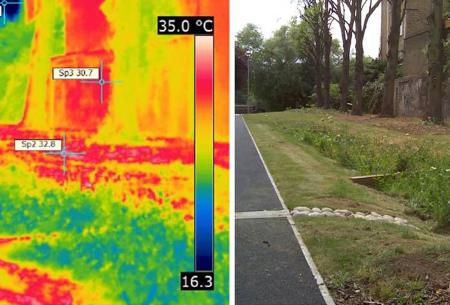
Resource description:
Toolkit for monitoring urban green infrastructure projects.
Author/Contact:
TURAS
Expert contact: Stuart Connop
Advantages:
- In order to ensure that benefits are maximised in the short and long-term, monitoring data of ecosystem performance is essential. This is the case for both experimental UGI and larger case studies. A detailed investigation of performance enables decision-
- To effectively quantify the multifunctional ecosystem service benefits that can be provided in urban areas through careful consideration of UGI design, consideration to monitoring provision must be made at the initiation of a project idea. This enables mo
- Main outcomes: knowledge/data, physical improvements, community empowerment.
Constraints:
- Lack of green spaces, industrially standardized green infrastructure, and poorly targeted resource management all represent missed opportunities for maximising the ecosystem service provision of Urban Green Infrastructure (UGI). If benefits in terms of mu
Uses of this resource:
Historically, the key foci driving urban green space planning and design have tended to be aesthetic and/or recreation. Thus, urban green space was restricted in scope and functionality. In recent years, recognition of the potential multifunctional benefits of UGI has led to a renewed drive for better-planned infrastructure to be incorporated into new urban developments and retrofitted into existing areas in order to provide multifunctional ecosystem services. The truly multifunctional benefits of UGI such as supporting biodiversity of national/international conservation value, and developing urban resilience and adaptation in the face of climate change, are often still ill-understood due to insufficient monitoring and valuation data. This leads to poorly informed decision-making and standardized off-the-shelf solutions.
Additional information:
WHO SHOULD BE INVOLVED?
FACILITATORY (PUBLIC) BODIES:
green spaces department; planning and development department; environmental and sustainability department; community development department; health and social well-being department
LOCAL TASK FORCE:
professional expert; researcher; local or regional authority; community group
SUITABLE FOR:
dense inner city; urban region; (sub-)urban communities
MAIN NECESSARY RESOURCES ARE:
space; expert knowledge; local knowledge; community trust; personnel time; public institutional set-up
Licence:
- Free, no licence
Development stage:
- Full, working product